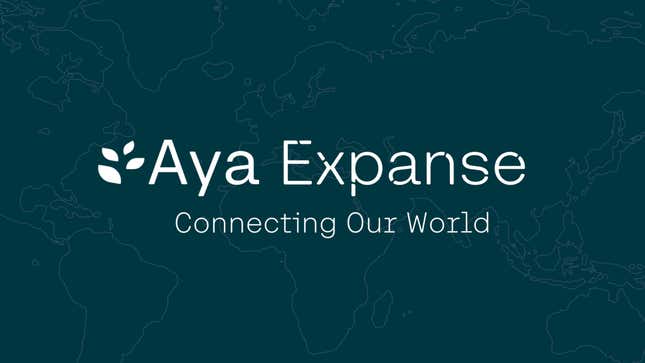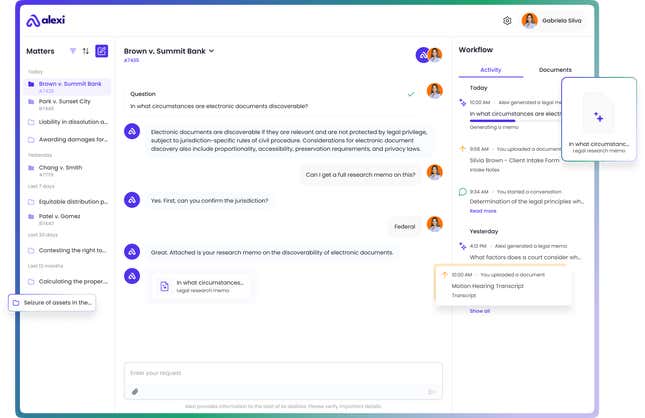
Each week, Quartz rounds up product launches, updates, and funding news from artificial intelligence-focused startups and companies.
Here’s what’s going on this week in the ever-evolving AI industry.

Each week, Quartz rounds up product launches, updates, and funding news from artificial intelligence-focused startups and companies.
Here’s what’s going on this week in the ever-evolving AI industry.

Cohere For AI, the research arm of enterprise AI platform Cohere, announced its family of multilingual models, Aya Expanse, this week.
The “highly performant” model family performs across 23 languages, and was released as both an 8 billion parameters model and a 32 billion parameters model on Kaggle and Hugging Face. Parameters are the variables a model learns from training data that guide its ability to make predictions.
The smaller model “makes breakthroughs more accessible to researchers worldwide,” while Cohere’s larger model “offers state-of-the-art multilingual capabilities,” the company said. The multilingual models outperformed open-weight models from Google (GOOGL), Mistral, and Meta (META), according to Cohere.

Nvidia (NVDA) chief executive Jensen Huang and King Frederik X of Denmark unveiled the country’s largest sovereign AI supercomputer, Gefion, this week alongside Danish Centre for AI Innovation A/S chief executive Nadia Carlsten. The country’s first AI supercomputer is named after a goddess from Danish mythology, and is operated by the Danish Center for AI Innovation. The AI supercomputer is an Nvidia DGX SuperPOD powered by 1,528 Nvidia H100 Tensor Core graphics processing units (GPUs).
Gefion is still being prepared, and will launch in a pilot phase for projects focused on using “AI to accelerate progress, including in such areas as quantum computing, drug discovery and energy efficiency,” Nvidia said.

Amazon One Medical (AMZN) launched new AI tools for its healthcare providers this week to reduce time spent on administrative tasks such as reviewing medical records and taking notes. The new AI tools are integrated into Amazon One Medical’s proprietary electronic health record.
The AWS HealthScribe takes notes of conversations during patient visits in real-time, which allows providers to engage with patients more, Amazon said. Afterwards, providers can review and update the notes before submitting them.
Another new AI tool can read, label, and summarize medical records from outside of Amazon One Medical, allowing providers to scan for screening exams, results, and information on medications.

Luminance launched Agent Lumi this week, which combines the company’s proprietary, domain-specific legal large language model (LLM), AI tools, and memory. Agent Lumi “performs tasks and makes decisions without needing human oversight,” the company said.
The active AI agents can automate legal tasks on top of Luminance’s LLM, which has been trained with over 150 million verified legal documents. Agent Lumi also has short-term and long-term memory, meaning it can “retain and recall information, learning from past interactions with individual users to tailor its actions and responses over time,” according to the company.

AI litigation platform Alexi announced an all-in-one platform this week to automate up to 80% of routine legal tasks, allowing litigators more time for “high-impact work,” the company said.
The upgraded Alexi platform includes new features such as a conversational AI assistant and the ability to analyze and summarize legal documents of any length or format.
“This new Alexi product is built on our strong foundation in AI-generated legal research work products; now, however, we’re revolutionizing the entire litigation workflow,” Mark Doble, chief executive of Alexi, said.

Real-time smart application platform Vantiq, Telemedicine Solutions, and NTT DATA (NTTYY) launched Wound AI this week, which they call a “state-of-the-art clinical decision support platform” for wound-care treatments. The platform uses generative AI to recommend precise wound care and support for deciding treatments.
Wound AI can integrate into existing Electronic Health Records, “and is built on a federated AI model that prioritizes data privacy and security while promoting continuous learning and improvement,” the companies said.